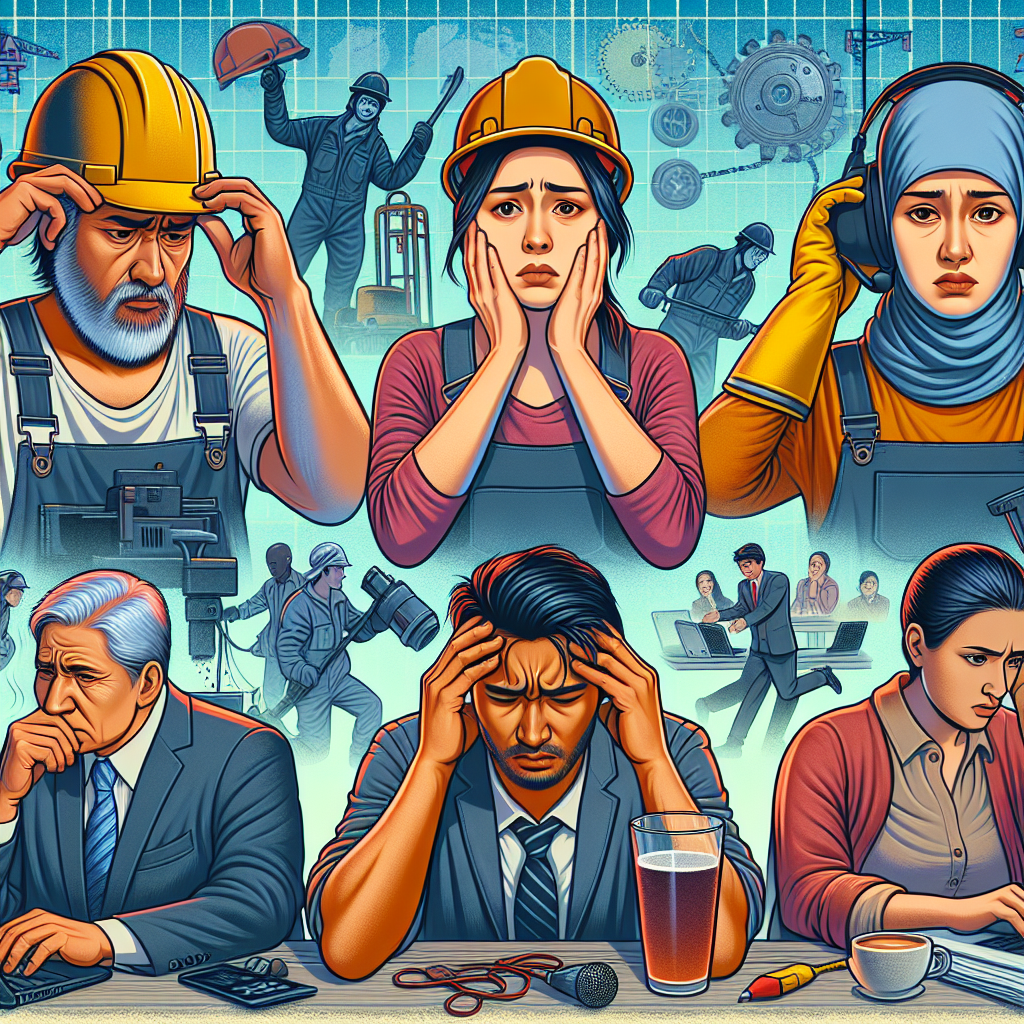Lingkungan kerja dapat berdampak pada kesehatan TKI, baik secara positif maupun negatif.
Dampak Lingkungan Kerja terhadap Kesehatan TKI
-
Table of Contents
- The Impact of Workplace Environment on the Health of Indonesian Migrant Workers (TKI)
- Introduction
- 1. Physical Hazards
- 2. Psychosocial Factors
- 3. Occupational Diseases
- 4. Lack of Access to Healthcare
- 5. Solutions and Recommendations
- a. Strengthening Occupational Safety and Health Regulations
- b. Promoting Mental Health Support
- c. Enhancing Healthcare Access
- d. Raising Awareness and Empowering TKIs
- Conclusion
The Impact of Workplace Environment on the Health of Indonesian Migrant Workers (TKI)

Introduction
Indonesia is known for its large number of migrant workers, commonly referred to as Tenaga Kerja Indonesia (TKI). These individuals leave their home country in search of better job opportunities and higher wages. However, the workplace environment that TKIs often find themselves in can have significant impacts on their health. This article aims to explore the various ways in which the workplace environment affects the health of TKIs in Indonesia.
1. Physical Hazards
One of the primary concerns in the workplace environment for TKIs is exposure to physical hazards. Many TKIs work in industries such as construction, manufacturing, and agriculture, where they are exposed to dangerous machinery, chemicals, and extreme temperatures. These physical hazards can lead to injuries, respiratory problems, and long-term health issues.
For example, in the construction industry, TKIs often work in hazardous conditions without proper safety equipment or training. This puts them at a higher risk of accidents, falls, and injuries. Similarly, in the agricultural sector, exposure to pesticides and other chemicals can lead to respiratory problems, skin diseases, and even cancer.
2. Psychosocial Factors
The workplace environment also has a significant impact on the mental health of TKIs. Many migrant workers face long working hours, low wages, and poor living conditions, which can lead to stress, anxiety, and depression. They often experience isolation and discrimination, as they are far away from their families and support systems.
Furthermore, language barriers and cultural differences can make it challenging for TKIs to communicate and integrate into their workplace. This can lead to feelings of alienation and a lack of social support, further exacerbating their mental health issues.
3. Occupational Diseases
TKIs are also at risk of developing occupational diseases due to the nature of their work and the conditions they are exposed to. In industries such as mining and manufacturing, workers may be exposed to hazardous substances such as asbestos, silica, and lead, which can lead to respiratory diseases, cancer, and neurological disorders.
Additionally, long working hours and repetitive tasks can result in musculoskeletal disorders such as back pain, carpal tunnel syndrome, and tendonitis. These occupational diseases not only affect the physical health of TKIs but also impact their overall well-being and ability to work.
4. Lack of Access to Healthcare
Another significant issue faced by TKIs is the lack of access to healthcare services. Many migrant workers do not have health insurance or are not aware of their rights to healthcare. This means that when they fall ill or get injured, they may not receive the necessary medical attention or treatment.
Furthermore, language barriers and cultural differences can make it difficult for TKIs to navigate the healthcare system in their host country. They may not understand the local healthcare practices or have access to interpreters, making it challenging to communicate their health concerns effectively.
5. Solutions and Recommendations
Addressing the impact of the workplace environment on the health of TKIs requires a multi-faceted approach involving various stakeholders. Here are some potential solutions and recommendations:
a. Strengthening Occupational Safety and Health Regulations
The Indonesian government should enforce stricter regulations to ensure the safety and well-being of TKIs in the workplace. This includes providing proper safety equipment, training, and monitoring to reduce the risk of accidents and injuries. Employers should be held accountable for providing a safe working environment for their employees.
b. Promoting Mental Health Support
Employers should prioritize the mental health of TKIs by providing access to counseling services, support groups, and cultural integration programs. This can help alleviate the stress and isolation experienced by migrant workers and improve their overall well-being.
c. Enhancing Healthcare Access
The Indonesian government should work towards ensuring that all TKIs have access to affordable healthcare services. This can be achieved by providing health insurance or establishing partnerships with healthcare providers to offer discounted rates for migrant workers. Additionally, efforts should be made to improve language support and cultural sensitivity in healthcare facilities.
d. Raising Awareness and Empowering TKIs
TKIs should be educated about their rights and entitlements in the workplace, including access to healthcare and protection against discrimination. Awareness campaigns and training programs can empower TKIs to advocate for their rights and seek help when needed.
Conclusion
The workplace environment has a significant impact on the health of TKIs in Indonesia. Physical hazards, psychosocial factors, occupational diseases, and lack of access to healthcare are some of the key challenges faced by migrant workers. By implementing stricter regulations, promoting mental health support, enhancing healthcare access, and raising awareness, we can improve the overall well-being of TKIs and ensure their health and safety in the workplace.
It is crucial for the Indonesian government, employers, and society as a whole to recognize the importance of protecting the health of TKIs and take proactive measures to address the issues they face. By doing so, we can create a more inclusive and supportive work environment for all migrant workers in Indonesia.







